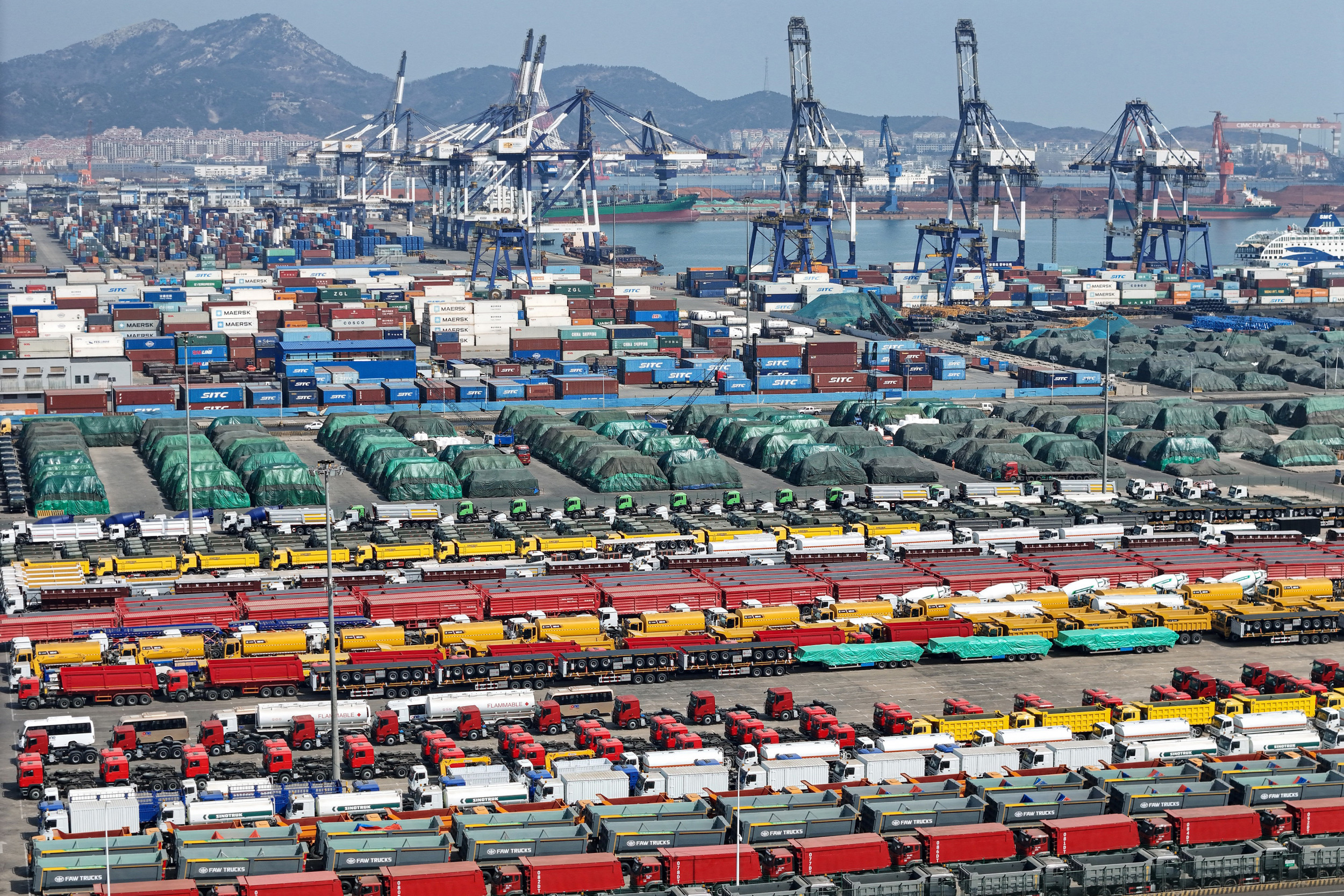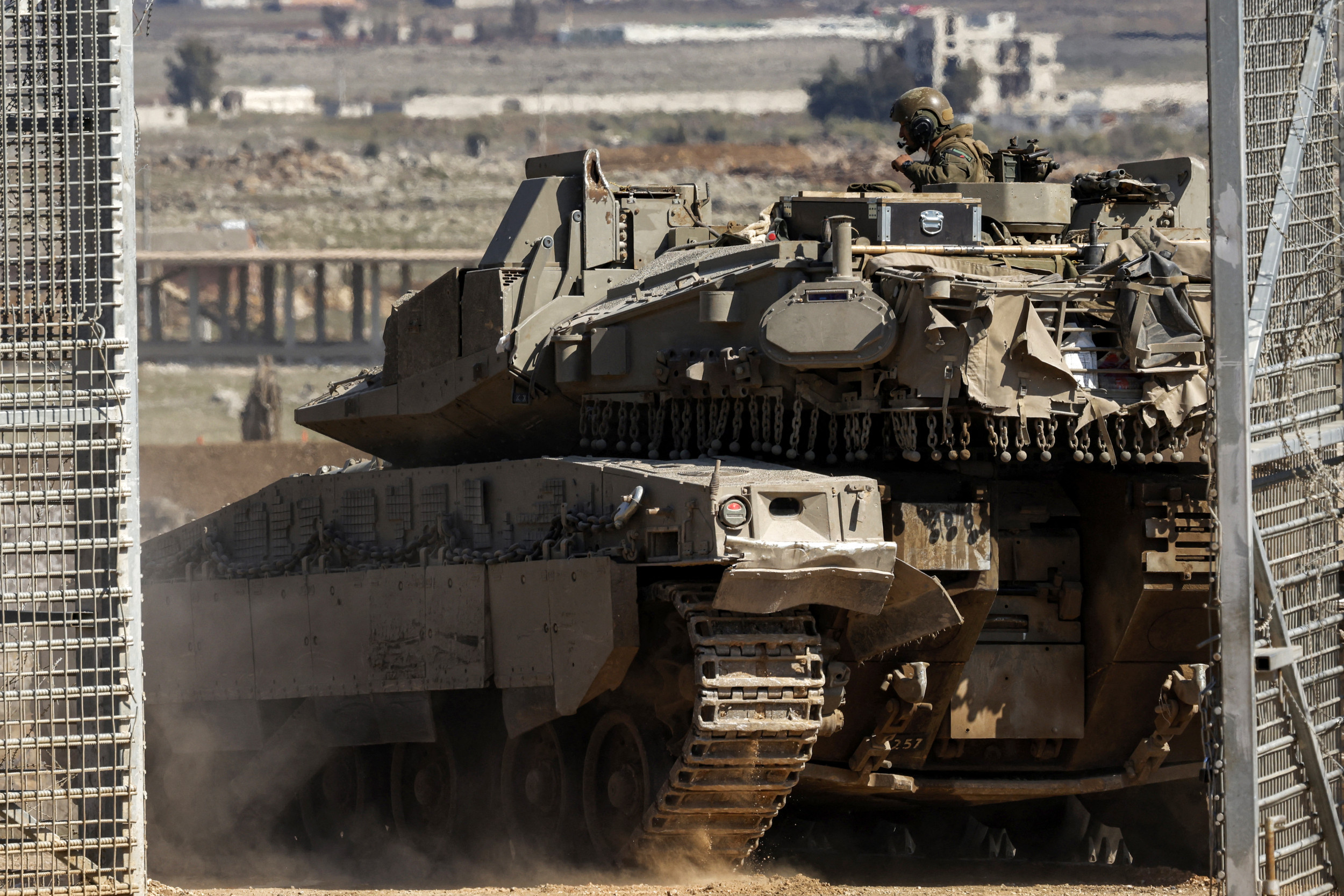Over the past year, as Israel's ground offensive against Hezbollah ramped up along the Israel-Lebanon border, one disturbing pattern repeatedly emerged from the field: the overwhelming presence of Russian-made weaponry inside southern Lebanon.
Time and again, Israel Defense Forces (IDF) troops operating in Hezbollah-controlled territory uncovered homes converted into makeshift arsenals, packed with advanced Russian arms. Crates filled with anti-tank missiles, mortars, and rockets—many marked with Russian export codes—provided evidence of a pipeline stretching from Moscow through Damascus, and directly into Hezbollah's hands.
Among the most concerning finds were sophisticated Kornet anti-tank guided missiles, capable of penetrating even the most heavily armored Israeli vehicles. Some of these missiles were manufactured as recently as 2020, indicating a supply line that has remained active well into recent years. Alongside them were older but still lethal systems—Fagot, Konkurs, and even Soviet-era Sagger missiles. The IDF uncovered weapons stores in civilian homes, schools, and mosques, embedded in the very communities Hezbollah claims to defend.
These discoveries were not isolated incidents. They are part of a broader reality: Russia, while waging its own war in Ukraine, has continued to quietly arm Israel's enemies. The alliance between Moscow and Tehran has grown considerably since Russia's 2022 invasion of Ukraine, deepening not only in diplomatic and economic terms, but in the defense arena as well. Iran has supplied Russia with thousands of Shahed-136 suicide drones—used to devastating effect against Ukrainian infrastructure—and in return, the Kremlin has opened its arms depot to the Islamic Republic and its proxies.
That growing axis has real consequences for Israel. While much of the international community remains focused on the war in Europe, Russia's role in arming the region cannot separated from the broader questions of peace in Ukraine.
Prime Minister Benjamin Netanyahu has spent recent months pressing exactly this case in Washington: Any agreement to end the war in Ukraine—and particularly any deal that relaxes sanctions on Russia—must include provisions to curb Russian military support for Iran and Hezbollah.
For Israel, the stakes could not be higher. The IDF continues to engage in regular skirmishes with Hezbollah fighters and has resumed operations against Hamas in Gaza, while its air force strikes targets inside Syria. As long as Russia continues to serve as Iran's ally, these proxies will remain well-supplied.
This is not merely about military hardware. Recent reports claim that Russian missile experts have been spotted at multiple Iranian sites, working closely with the Islamic Revolutionary Guard Corps to enhance Tehran's ballistic missile capabilities.

Israel's approach to Russia has long been one of strategic caution. Since the outbreak of the Ukraine war, Jerusalem has stopped short of formally joining Western sanctions or supplying weapons to Kyiv. That reluctance stems from three primary concerns: the need for continued military deconfliction with Russian forces in Syria; the risk that openly confronting Moscow could escalate its support for Israel's adversaries; and the welfare of the Jewish community still residing within Russia.
But as Moscow's partnership with Iran deepens, Israel's calculus may need to change. While Jerusalem values its ability to operate freely in Syrian airspace—thanks in part to the deconfliction mechanism with Russian commanders—that arrangement cannot come at the cost of allowing Hezbollah to build an arsenal capable of overwhelming Israel's defenses.
That's why Israeli officials are urging the Trump administration to go a step further. If and when a broader Ukraine ceasefire is formalized, it must address Russian behavior in the Middle East. A sustainable peace in Europe should not enable Moscow to bankroll war against Israel. Any deal that eases sanctions or normalizes Russia's global standing should come with an end to weapons transfers to Iran and Syria and a cessation of military cooperation that enhances Iran's nuclear and missile programs.
Such demands may be seen as peripheral by people focused on Ukraine. But for Israel, they are central. The country is engaged on two fronts—Gaza in the south and Lebanon in the north—with a third, more existential threat looming in the east.
The impact of those Israeli officials' message appeared recently in the readout of a phone call between U.S. President Donald Trump and Russian President Vladimir Putin. According to the White House, the two leaders discussed both Ukraine and the Middle East, agreeing in principle on the need to prevent further conflict and to ensure Iran can never threaten Israel's existence.
If Western leaders wish to secure lasting regional stability, they must recognize this linkage. Ending the war in Ukraine without addressing Russia's entanglements in the Middle East would be a strategic error—one that allows Hezbollah to rearm, Iran to advance, and Israel to remain trapped in a cycle of escalation.
Because in the Middle East, peace is never just about ending one war. It's about preventing the next.
Yaakov Katz is the co-author of the forthcoming book "While Israel Slept," is a senior fellow at JPPI, a global Jewish think tank and is the former editor of The Jerusalem Post.
The views expressed in this article are the writer's own.



